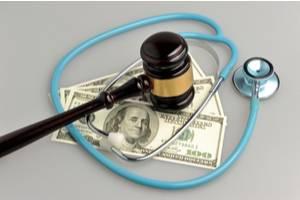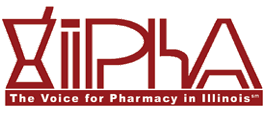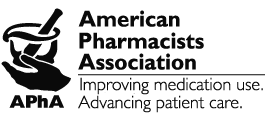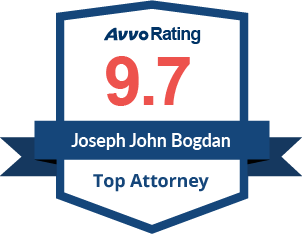Recent Blog Posts
Have You Been Accused of Dental Insurance Fraud?
 Our professional license defense law firm has written extensively about the serious consequences physicians face if they are accused of medical insurance fraud, including loss of medical license even criminal charges. However, dentists can also be accused with insurance fraud and face the same type of consequences. If you have been accused of dental insurance fraud, contact an Illinois professional license defense attorney right away.
Our professional license defense law firm has written extensively about the serious consequences physicians face if they are accused of medical insurance fraud, including loss of medical license even criminal charges. However, dentists can also be accused with insurance fraud and face the same type of consequences. If you have been accused of dental insurance fraud, contact an Illinois professional license defense attorney right away.
Dental Insurance Fraud
Dental fraud is any intentional misrepresentation or deception of treatment needed in order to obtain unauthorized benefits. According to the National Health Care Anti-Fraud Association, more than $12 billion is lost to dental fraud every year.
One method of fraud that is becoming more common is the alterations of digital X-rays using software programs to create images that show bogus tooth decay, missing tooth structure, lesions, fractures, and more.
HHS OIG Announces Collection of Almost $2 Billion in Healthcare Fraud in 2021
 The U.S. Department of Health and Human Services (HHS) Office of Inspector General (OIG) has issued the latest edition of the Health Care Fraud and Abuse Control Program (HCFAC) Annual Report. The report details the collection of just under $1.9 billion in healthcare fraud settlements and judgments in fiscal year 2021. Funds were returned to the Medicare Trust Funds and also to other federal agencies. Per the HCFAC, the federal government was able to recoup more than $5 billion in healthcare fraud.
The U.S. Department of Health and Human Services (HHS) Office of Inspector General (OIG) has issued the latest edition of the Health Care Fraud and Abuse Control Program (HCFAC) Annual Report. The report details the collection of just under $1.9 billion in healthcare fraud settlements and judgments in fiscal year 2021. Funds were returned to the Medicare Trust Funds and also to other federal agencies. Per the HCFAC, the federal government was able to recoup more than $5 billion in healthcare fraud.
Healthcare Fraud Charges
The U.S. Department of Justice (DOJ) initiated more than 800 new criminal healthcare fraud investigations last year. Of those investigations, federal prosecutors filed criminal charges against 741 defendants. More than 300 of those defendants have already been convicted of healthcare fraud-related offenses.
U.S. Supreme Court Overturns Doctors’ Convictions on Controlled Substance Act Violations
 One of the most serious charges that a physician can be accused of is violating the Controlled Substances Act. Under the Act, doctors are authorized to dispense controlled substances covered under the law by prescription to patients but only under if that medication is provided for a “legitimate medical purpose.” Violations of this law can result not only in a doctor losing their medical license but they could also face a prison sentence if found guilty.
One of the most serious charges that a physician can be accused of is violating the Controlled Substances Act. Under the Act, doctors are authorized to dispense controlled substances covered under the law by prescription to patients but only under if that medication is provided for a “legitimate medical purpose.” Violations of this law can result not only in a doctor losing their medical license but they could also face a prison sentence if found guilty.
Last month, the U.S. Supreme Court overturned the convictions of two doctors who were convicted in two different cases of unlawful drug distribution. In a unanimous decision, the justices sent both cases back to the lower courts in each case’s respective state.
Accusations of Unauthorized Prescriptions
In the first case, a doctor who ran a clinic in Alabama was accused of issuing almost 300,000 prescriptions for controlled substances in a four-year period. Prosecutors said the clinic was the country’s leading source of fentanyl drug prescriptions.
Crimes of Moral Turpitude and Your Illinois Medical License
 Our law firm has written a number of blog posts regarding the consequences that can occur with a physician’s medical license should they find themselves facing criminal charges. This is why any type of criminal accusation – even if it is a first offense – should trigger a phone call to a skilled Illinois medical license defense attorney since there is little doubt that the criminal charges will lead to some kind of action by the Illinois Medical Board.
Our law firm has written a number of blog posts regarding the consequences that can occur with a physician’s medical license should they find themselves facing criminal charges. This is why any type of criminal accusation – even if it is a first offense – should trigger a phone call to a skilled Illinois medical license defense attorney since there is little doubt that the criminal charges will lead to some kind of action by the Illinois Medical Board.
Self-Reporting
Although your first instinct may be to try to keep the news of your arrest as quiet as possible, Illinois physicians have a responsibility to self-report certain types of arrests and/or convictions to the medical board. Medical facilities also have an obligation to report any information they learn about a physician affiliated with their organization who is facing certain charges or has been convicted. So, if the doctor fails to self-report, there is a high risk the hospital or medical facility they work for could, compounding an already potential dire situation with the medical board.
Preparing for a DEA Pharmacy Audit
 The Drug Enforcement Administration (DEA), which was established in 1973, is the federal agency that is responsible for the enforcement of laws and regulations related to narcotics and controlled substances. Pharmacies and other businesses that administer, dispense, or supply controlled substances are required to register with the DEA.
The Drug Enforcement Administration (DEA), which was established in 1973, is the federal agency that is responsible for the enforcement of laws and regulations related to narcotics and controlled substances. Pharmacies and other businesses that administer, dispense, or supply controlled substances are required to register with the DEA.
Periodically – and at random – the DEA will conduct an inspection of a pharmacy in order to ensure the pharmacy is compliant and following required regulations under the Controlled Substances Act (CSA). These inspections – referred to as audits – typically take place every three years or so. However, there are situations where the DEA may decide to conduct an audit, such as receiving information of potential irregularities.
If you have been notified that your pharmacy is under a DEA audit, the following steps can help you prepare.
What Every Medical Professional Should Know About the NPDB
 In 1986, Congress passed the Title IV of Public Law 99-660, the Health Care Quality Improvement Act. Included in the law was the establishment of the National Practitioner Data Bank (NPDB), which serves as a federal repository of health care providers in the U.S. The law requires reporting of any hospital, licensure, or professional society actions against doctors, dentists, and other healthcare professionals. It is important for any healthcare professional to be aware of the NPDB and what may be required of them.
In 1986, Congress passed the Title IV of Public Law 99-660, the Health Care Quality Improvement Act. Included in the law was the establishment of the National Practitioner Data Bank (NPDB), which serves as a federal repository of health care providers in the U.S. The law requires reporting of any hospital, licensure, or professional society actions against doctors, dentists, and other healthcare professionals. It is important for any healthcare professional to be aware of the NPDB and what may be required of them.
What Type of Information Is Reported to the NPDB?
Under the law, the following information is required to by reported to the NPDB by specific health care entities:
-
Any medical malpractice payments made on a healthcare professional’s behalf, including out-of-court settlements
Defending Your Illinois Medical License Against Allegations of Drug Addiction
 Last year, Hulu produced the limited series, “Dopesick.” The show revealed how the opioid epidemic that has gripped the U.S. started and how it has affected people. One of the characters in the show, Dr. Samuel Finnix, is a doctor in a small town who is persuaded by an OxyContin salesperson to prescribe the drug to his patients. Not only do many of his patients become addicted to the drug, but the doctor also develops an addiction. Sadly – although the character is a fictional one – he is based on many true-life stories that have found themselves in the same place the character does.
Last year, Hulu produced the limited series, “Dopesick.” The show revealed how the opioid epidemic that has gripped the U.S. started and how it has affected people. One of the characters in the show, Dr. Samuel Finnix, is a doctor in a small town who is persuaded by an OxyContin salesperson to prescribe the drug to his patients. Not only do many of his patients become addicted to the drug, but the doctor also develops an addiction. Sadly – although the character is a fictional one – he is based on many true-life stories that have found themselves in the same place the character does.
Addiction in Medical Professionals
According to national statistics, more than 100,000 medical professionals – including physicians, nurses, therapists, technicians, and other health professionals – are struggling with abuse or addiction to Oxycodone, Fentanyl, or other narcotics. One in 10 doctors will abuse or become addicted to drugs or alcohol during their career, while 20 percent of nurses struggle with some form of addiction.
Do Hospital Work Environments Create a High Risk for Nursing Errors?
 It takes strong dedication to be a hospital nurse. The majority work long shifts, with hours that go into the double digits, dealing with lack of sleep and heavy workloads, all while trying to provide patients with the best care possible. The hospital work culture can – and often does – leads to errors that can ultimately put a nurse’s license at risk.
It takes strong dedication to be a hospital nurse. The majority work long shifts, with hours that go into the double digits, dealing with lack of sleep and heavy workloads, all while trying to provide patients with the best care possible. The hospital work culture can – and often does – leads to errors that can ultimately put a nurse’s license at risk.
Hospital Work Culture
Several years ago, the Vickie Milazzo Institute in Houston conducted a survey of nurses throughout the country. The results found that most of them were overworked and stressed, as well as feeling underutilized and underappreciated.
More than half of the nurses surveyed said that the shifts they work make it impossible to get enough sleep during the week. Between the double-digit shift hours and the on-call availability they are required to work, it is not uncommon for a nurse to pull a 24-hour or even a 36-hour shift.
How a Plea Bargain Can Affect Your Illinois Professional License
 In many criminal cases, the person who has been charged will often enter into a plea agreement with the prosecutor’s office instead of going to trial and letting a jury decide their guilt or innocence. If it appears that the prosecutor has enough evidence to convict them, a defendant agrees to a plea bargain in order to receive a lesser sentence than what they would receive if convicted.
In many criminal cases, the person who has been charged will often enter into a plea agreement with the prosecutor’s office instead of going to trial and letting a jury decide their guilt or innocence. If it appears that the prosecutor has enough evidence to convict them, a defendant agrees to a plea bargain in order to receive a lesser sentence than what they would receive if convicted.
For most people, agreeing to a plea bargain will conclude the legal process for them. However, for a person who holds a professional license, agreeing to a plea bargain in a criminal case could jeopardize that license and their future.
Professional License Holders and Criminal Charges
The Illinois Department of Financial and Professional Regulation (IDFPR) oversees multiple state licensing boards, including medical, nursing, dental, and real estate. Not only do these boards address professionals who have been accused of improper business practices, but they also investigate those who have been charged with criminal offenses. If a board concludes that the professional violated the rules and regulations that the state requires of them, it has the authority to suspend or even permanently revoke that professional’s license and their ability to earn a living in their chosen profession.
Allegations That Can Place Your Psychology License at Risk
 It takes years of education, training, and dedication to become a successful psychologist in Illinois. Not only is there grinding coursework to get your degree, but there are also stringent requirements to obtain your license to practice in the state. Unfortunately, all it takes is one accusation of wrongdoing and a dedicated psychologist can find his or her career in jeopardy.
It takes years of education, training, and dedication to become a successful psychologist in Illinois. Not only is there grinding coursework to get your degree, but there are also stringent requirements to obtain your license to practice in the state. Unfortunately, all it takes is one accusation of wrongdoing and a dedicated psychologist can find his or her career in jeopardy.
All licensure issues are handled by the Illinois Clinical Psychologists Licensing and Disciplinary Board, which falls under the Illinois Department of Financial and Professional Regulation (IDFPR). If you have been contacted by the board that you are under investigation, contact an Illinois professional license defense attorney immediately.
What Types of Complaints Can Trigger an Investigation?
There are many reasons why a patient may file a complaint against a psychologist. Some of the most common allegations filed with the board include:
















